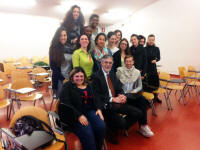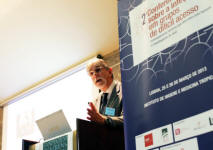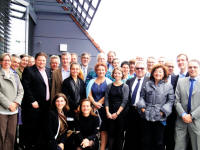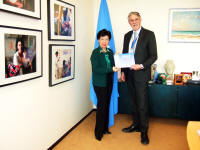GFMER - Sexually transmitted infections - Antonio Carlos Gerbase
Antonio Carlos Gerbase
Director of GFMER HIV/AIDS and other Sexually Transmitted Infections Program

Dr Antonio Carlos Gerbase, MD, MSC
antonio.gerbase@gfmer.org
From 1994 to 2013 Dr Antonio Gerbase worked for WHO as Medical Officer in the Department of HIV/AIDS in the following functions: Program Manager in the Office of Sexually Transmitted Diseases (STI); Prevention Coordinator; Partnerships manager; Internal coordination management; Country and regional support officer; Prevention of sexual transmission of HIV/STI among key populations and as a Senior Advisor in the area of prevention of mother to child transmission of HIV.
Dr Antonio Gerbase is Brazilian and Swiss. He started his career in 1977 as Public Health MD at the Health Department, Rio Grande do Sul, Brazil, having worked with Leprosy, HIV/AIDS and Sexually Transmitted Diseases. In 1981, he was appointed Director, STD and AIDS Control Program of the Health Department.
At national level, from1979, he contributed to the establishment of the Brazilian National HIV/AIDS/STI program as a member of the National Commission for AIDS control, and as a technical advisor in epidemiology, STI, PMTCT and care.
He worked with WHO as a consultant in South and Central America from 1986 to 1993 in functions such as Training, STI control, Evaluation and Estimations and Forecasting of the HIV/AIDS epidemic.
Dr Gerbase studied medicine at the Federal University of Rio Grande do Sul, Brazil (1974), became Resident in Dermatology (1976) before following for a Mastership in Clinical Medicine (1989). In 1991, he was granted a Fellowship in Public Health, at the Johns Hopkins University, Baltimore, USA, School of Hygiene and Public Health.
Dr Gerbase is married to a medical doctor and has two graduated daughters.
Planned GFMER activities
Dr Gerbase will
- Lead GFMER activities in HIV/AIDS/STI.
- Develop partnerships in HIV/AIDS/STI education and research.
- Foundation technical reference in HIV/AIDS/STI.
- Lead strategic thinking in the development of new and creative paradigms in HIV/AIDS/STI prevention and care.
- Provide and expand, through networks, the Foundation technical assistance capability.
- Establish the Foundation strategic priorities in HIV/AIDS/STI.
- Coordinate and provide input to existent training and research activities and to develop, with partners, especially WHO, new products based in country and institutional needs.
Activities lines
Partnerships
- Liaison with WHO, UNAIDS and other key partners informing about the Foundation and the new HIV/AIDS/STI area, strengthening and fostering partnerships and discussing potential joint activities.
Technical Assistance
- Proactively dissemination of updated technical information in HIV/AIDS/STI and to promptly response to HIV/AIDS/STI related questions received from partners and Foundation members.
Capacity building
- Coordination and update, jointly with WHO, the STI module of the Training Course in Sexual and Reproductive Health.
- Creation, jointly with partners, a new HIV/AIDS module for the Training Course in Sexual and Reproductive Health with emphasis in implementation challenges, targeting programme managers.
- Production of a computer based 6 hours STI course for programme managers.
Innovation
- Creation of a “STI Think Tank” with key high level partners to discuss barriers, opportunities and new strategies, including use of new diagnostic tests, for STI prevention and care. Initially thematic electronic discussions but envisaging a high level meeting in 2014.
Images
Recent meetings and training activities: Brescia (STI module in Tropical Medicine Course), Lisbon (HIV/AIDS/STI in Key Populations),
Berlin (ESTHER meeting) and with Dr Margaret Chan, WHO Director-General
Selected links
STIs
- Reproductive health and STI
- Prevention and treatment of HIV and other sexually transmitted infections for sex workers in low- and middle-income countries. Recommendations for a public health approach
- Guidelines for the management of sexually transmitted infections
- Global prevalence and incidence of selected curable sexually transmitted infections: overview and estimates
- Policies and principles for STI control
- Development of new STI case management course
- Guidelines for STI surveillance
HIV/AIDS
Key populations
- Guidelines for Prevention and Care of HIV/AIDS and Sexually Transmitted Diseases among men having sex with men
- Guidelines for HIV/AIDS prevention and care among sex workers
- Global Forum of Men Having Sex with Men
- Network of Sex Workers Projects
eMTCT
UN Agencies
Aid Agencies



